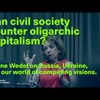invasion
Deep learning diffusion by infusion into preexisting technologies - Implications for users and society at large
in: Technology in Society. 63, 101396 Abstract:Artificial Intelligence (AI) in the form of Deep Learning (DL) technology has diffused in the consumer domain in a unique way as compared to previous gene, i.e., by being added to preexisting technologies that are already in use. We find that DL-algorithms for recommendations or ranking have been infused into all the 15 most popular mobile applications (apps) in the U.S. (as of May 2019). DL-infusion enables fast and vast diffusion. For example, when a DL-system was infused into YouTube, it almost immediately reached a third of the world's population. We argue that existing theories of innovation diffusion and adoption have limited relevance for DL-infusion, because it is a process that is driven by enterprises rather than individuals. We also discuss its social and ethical implications. First, consumers have a limited ability to detect and evaluate an infused technology. DL-infusion may thus help to explain why AI's presence in society has not been challenged by many. Second, the DL-providers are likely to face conflicts of interest, since consumer and supplier goals are not always aligned. Third, infusion is likely to be a particularly important diffusion process for DL-technologies as compared to other innovations, because they need large data sets to function well, which can be drawn from preexisting users. Related, it seems that larger technology companies comparatively benefit more from DL-infusion, because they already have many users. This suggests that the value drawn from DL is likely to follow a Matthew Effect of accumulated advantage online: many preexisting users provide a lot of behavioral data, which bring about better DL-driven features, which attract even more users, etc. Such a self-reinforcing process could limit the possibilities for new companies to compete. This way, the notion of DL-infusion may put light on the power shift that comes with the presence of AI in society.
War Policies and Migration Aspirations in Russia
Delmi Report 2024:11 Summary This report investigates how migration aspirations within the Russian population have evolved following the full-scale invasion of Ukraine by Russia in 2022. It primarily fo
The fast and furtive spread of AI by infusion into technologies that we already in use – a critical assessment
In Hanemaayer, A. (editor) Artificial Intelligence and Its Discontents. Palgrave. Abstract AI has often reached individuals covertly, rather than by their own choosing. Standard automatic version update
The fast and furtive spread of AI by infusion into technologies that we already in use – a critical assessment
I Hanemaayer, A. (editor), Artificial Intelligence and Its Discontents. Palgrave. Abstract (book) On what basis can we challenge Artificial Intelligence (AI) - its infusion, investment, and implementatio
‘Ukraine’s Cause is Ours!’ Diaspora and Migration in Swedish Parliamentary Debates, 2014–2022
Nordic Journal of Migration Research 2025 vol 15, issue 2 Abstract The annexation of Crimea, the subsequent insurgency of Russian-backed separatists in the Donbas region of Ukraine in 2014 and the curren
How Large Will the Ukrainian Refugee Flow Be, and Which EU Countries Will They Seek Refuge In?
Delmi Policy Brief 2022:3. Abstract Three weeks after the Russian invasion of Ukraine more than three million people have fled the war. Knowledge and predictions on the flow of migrants are important for
Janine Wedel: Russia, Ukraine, and our world of competing visions. Can civil society counter oligarchic capitalism?
Plats: Institutet för framtidsstudier, Holländargatan 13, 4 trappor i Stockholm Register here Research seminar with Janine R. Wedel, University Professor, Schar School of Policy and Government,George Mas

Janine Wedel: Can civil society counter oligarchic capitalism?
Full title: Russia, Ukraine, and our world of competing visions. Can civil society counter oligarchic capitalism? Research seminar with Janine R. Wedel, University Professor, Schar School of Policy an
Thomas Sommer-Houdeville: Remaking Iraq
- Neoliberalism and a System of violence after the US invasion, 2003-2011 Dr Thomas Sommer-Houdeville, Stockholm University, Department of Sociology. ABSTRACT After the invasion of Iraq and the destructi
Sweden's bumpy road to NATO membership: Political processes and moral dilemmas
Venue: Medelhavsmuseet, Fredsgatan 2 i Stockholm. We will be in Hörsalen, which is just behind Bagdad Café which will be open until 19.00. Register here > Abandoning its age-old doctrine of military n








